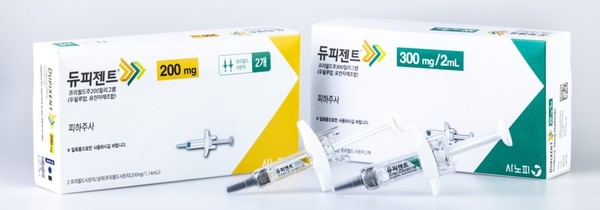Sanofi said its interleukin-4/13 inhibitor Dupixent (dupilumab) aimed to treat chronic pruritus with high clinically unmet demand.
On Tuesday, the Ministry of Food and Drug Safety allowed Sanofi to conduct a phase 3 trial of Dupixent.

Sanofi plans to conduct two randomized, double-blind, placebo-controlled, multicenter, parallel-group studies to evaluate the efficacy and safety of Dupixent in adults with chronic pruritus of unknown origin (CPUO).
Chronic pruritus is known to have a highly unmet clinical need. Chronic pruritus is caused by many unrelated diseases, including chronic kidney disease, hepatobiliary disease, and neuropathy, in addition to various primary skin diseases such as atopic dermatitis, psoriasis, and pruritus nodosa.
CPUO refers to an itch that persists for more than six weeks without skin symptoms or other known causes. As CPUO patients do not respond to existing therapies and the disease impairs the quality of life severely, the development of a therapeutic agent has been urgent.
Dupixent is the first biologic drug to treat various type 2 inflammatory diseases such as atopic dermatitis, asthma, and sinusitis. The treatment has significantly improved the clinical outcome of pediatric and adult patients with serious atopic dermatitis.
This time, Sanofi is broadening the age of target patients to treat CPUO, mainly among the elderly.
Dupixent already proved its therapeutic effect to treat prurigo nodularis (PN) caused by type 2 inflammation in a phase 3 study.
Industry officials expect that the treatment might work for CPUO patients, too.
Dupixent is likely to compete against JAK inhibitors fiercely not only in atopic dermatitis but chronic pruritus.
Lilly released a study where Olumiant (baricitinib) relieved itching of CPUO patients who did not respond to Dupixent, emphasizing the potential of JAK1 inhibitor.
Pfizer is also testing JAK inhibitor latecomer Cibinqo (abrocitinib) to evaluate its antipruritic effect in CPUO and PN patients in a phase 2 trial.
However, thrombus-related safety issues raised by JAK inhibitors in rheumatoid arthritis may rise in chronic pruritus, too.

